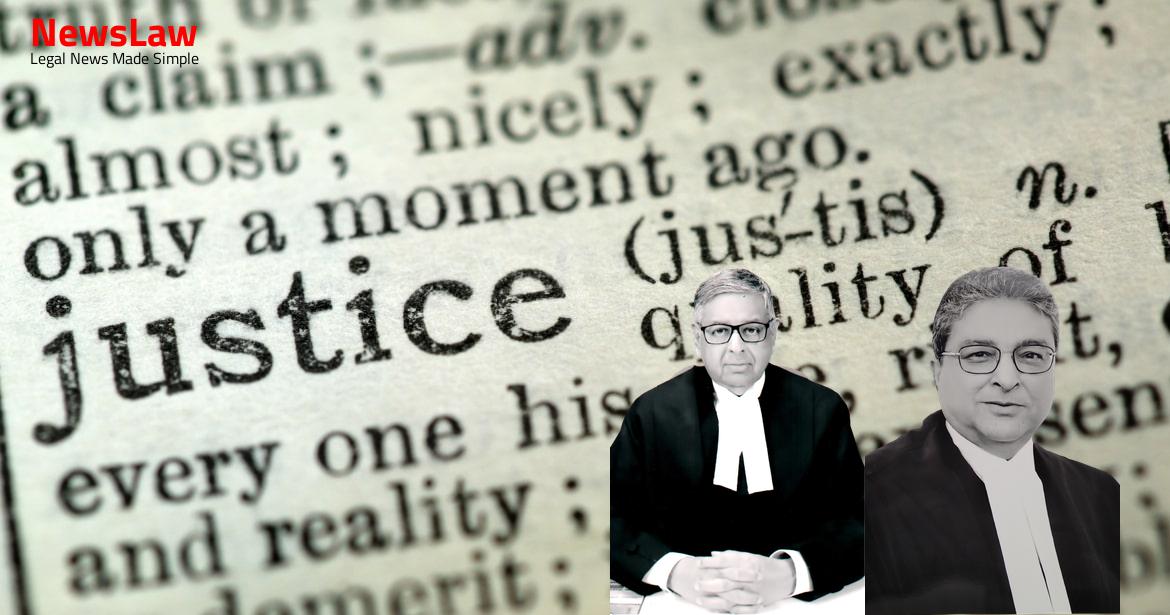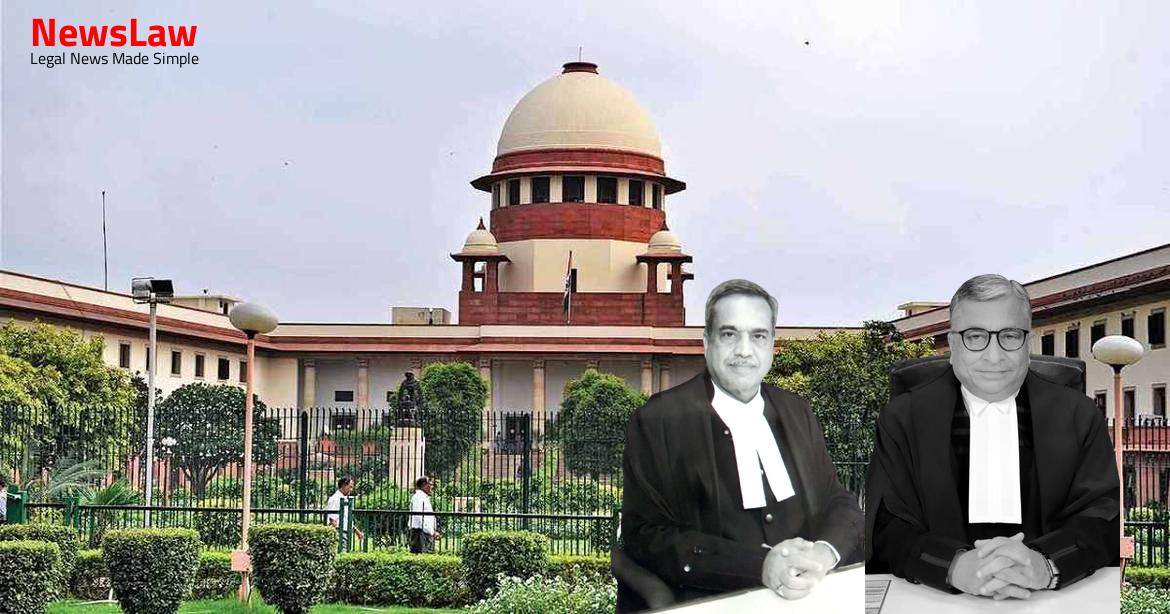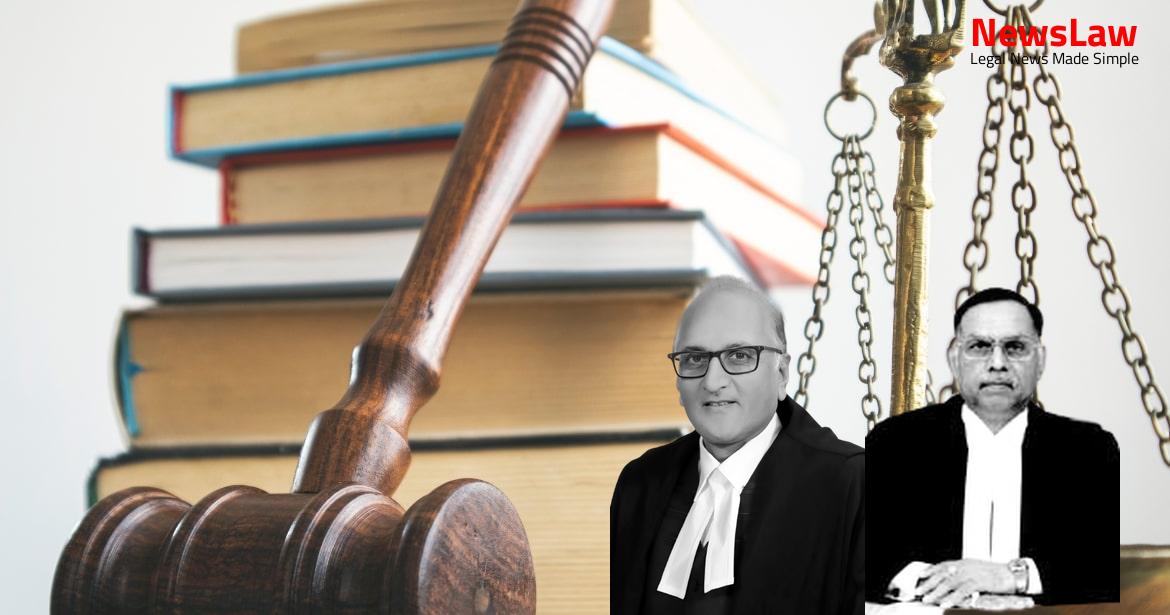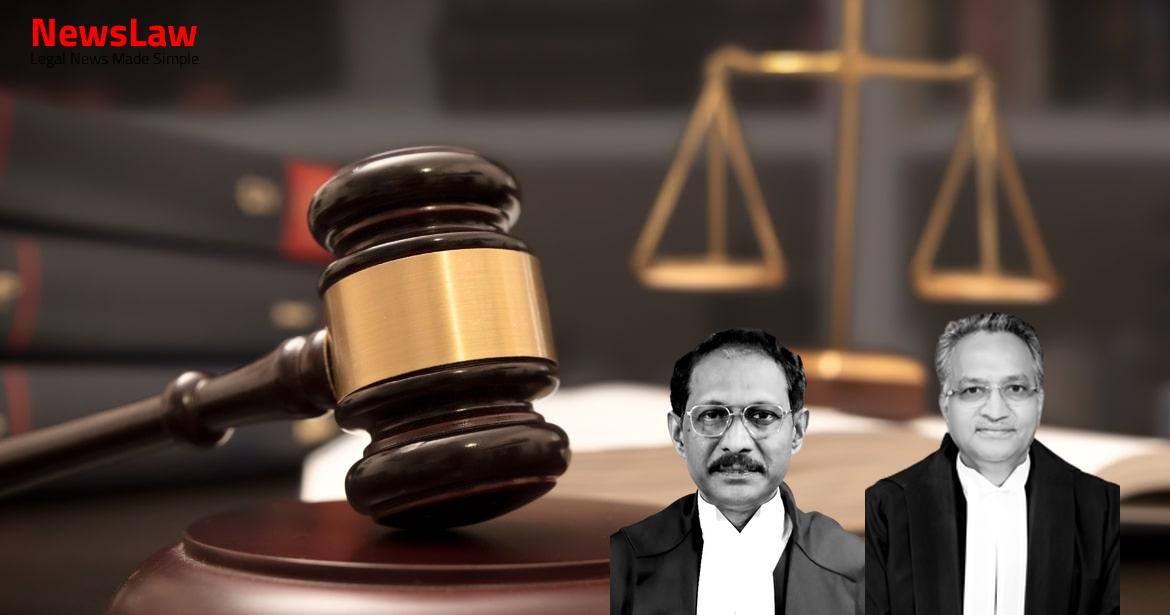In a recent legal case, the court delved into the necessity of obtaining approval in disciplinary proceedings, shedding light on the nuances of the approval process in ensuring the validity of charge memorandums. The case highlights the critical role of approval by the disciplinary authority in upholding the integrity and legality of disciplinary actions. Stay informed about the intricacies of legal requirements in disciplinary proceedings through this insightful analysis.
Facts
- Charge memorandum issued to the appellant on 18 November, 2002
- Allegation of demanding illegal payment during a survey under Section 133A of the Income-Tax Act
- Appellant’s request for quashing charges turned down
- Enquiry officer appointed, submitted report on 13 July, 2007
- Central Vigilance Commission concurred with the findings of the enquiry officer
- Disciplinary proceeding initiated against the appellant on 19 September, 2002
- Inconsistent approval process for disciplinary proceedings and charge memorandum
- Union of India invoking constitutional writ jurisdiction of the Delhi High Court
- Approval granted for continuation of disciplinary proceedings
- Issuance of a fresh memorandum of charges under Rule 14
- Previous applications and representations by the appellant on procedural irregularities
Also Read: Judicial Review in Disciplinary Proceedings
Arguments
- The Additional Solicitor General argues that the respondent did not claim a violation of natural justice as the charge memo was not approved by the disciplinary authority.
- It is contended that CAT and the High Court were wrong in quashing the charge-sheet as no prejudice was caused to the respondent.
- Ms. Indira Jaising highlights that Article 311, Rule 14, and the Office Order of 2005 aim to ensure that disciplinary actions are taken by an authority not subordinate to the appointing authority and that natural justice rules are followed.
- The appellant emphasizes the term ‘non est’ to reject the respondent authorities’ argument.
- The High Court accepted the respondent’s argument due to the absence of ex-post facto approval for the charge memorandum in Gopinath’s case.
- The main distinguishing feature between the case of the appellant and that decided in B.V. Gopinath (supra) is that in the facts of the latter judgment, the subject charge memorandum did not have the ex-post facto approval.
- The stand of the respondents is that there is no bar on giving ex-post facto approval by the Disciplinary Authority to a charge memorandum.
Also Read: Legal Analysis in Company Law Case
Analysis
- The Supreme Court allowed the appeal and set aside the impugned judgment and penalty.
- Any rule made shall not be inconsistent with Article 311 of the Constitution, providing additional safeguard to holders of civil posts.
- The distinction between approval and permission is highlighted, with approval ratifying an action until disapproved, while permission must be obtained before action becomes effective.
- The cases of Ashok Kumar Das and Bajaj Hindustan Limited are relevant for understanding the concept of approval and its implications.
- The word ‘non est’ can be used to deny the execution of an instruction or action.
- The High Court held that the charge memorandum being declared non est invalidates it for lack of approval.
- The High Court’s practical approach of granting ex-post facto approval when a departmental proceeding is pending was considered pragmatic.
- The absence of the expression ‘prior approval’ in a rule does not impact the requirement for approval as held in previous cases like B.V. Gopinath.
- A distinction is made between concluded disciplinary proceedings and pending proceedings in interpreting the requirement for approval in the case.
- The action in the instant case was approved by the assessing authority, ensuring its validity.
- The interpretation of rules and the requirement for approval in various contexts from previous cases like B.V. Gopinath and Ashok Kumar Das is discussed.
- The upheld decision in Union of India vs. B.V. Gopinath solidifies the appellant’s case.
- The term ’cause to be drawn up’ does not negate the necessity for definite and distinct charges to be approved by the disciplinary authority.
- The Finance Minister initially decides on whether departmental proceedings should be initiated against an officer, not on the approval of charge memos.
- The case involves seeking approval for prosecution and major penalty proceedings against an officer.
- Approval for departmental proceedings does not automatically mean approval for the charge memo.
- Legal requirement of granting approval cannot be fulfilled retrospectively.
- Approval for disciplinary proceedings and approval for a charge memo are separate acts requiring independent consideration by the disciplinary authority.
- CAT and High Court were right to interpret Office Order No 205 of 2005 in this case.
- Issuing a charge memo without approval renders it fundamentally defective and invalid in the eyes of the law.
- Amended procedure now requires charge memos to be issued only after approval is granted by the Finance Minister.
- Approval at the initiation stage does not rectify any later deficiencies in issuing the charge memo.
- The Delhi High Court dismissed the appeals in the appellant’s case.
- The court examined the issue of whether a chargesheet or charge memorandum could be given ex-post facto approval according to the Rules.
- The primary focus was on establishing the permissibility of ex-post facto approval for chargesheets or charge memorandums.
- Department’s power to pursue the matter has been reserved.
- It has not been foreclosed.
- This means that the department still has the authority to investigate further or take action on the matter.
Also Read: Secured Creditor Rights vs. Confiscation Orders Legal Battle
Decision
- The High Court judgment is set aside and the judgment of the Central Administrative Tribunal is restored.
- The judgment is subject to certain modifications in its operational part.
- No costs are awarded.
- If the department wants to continue the proceeding, a fresh charge memorandum must be issued within two months.
- The disciplinary proceeding should not exceed the specified time limit.
Case Title: SUNNY ABRAHAM Vs. UNION OF INDIA (2021 INSC 920)
Case Number: C.A. No.-007764-007764 / 2021



